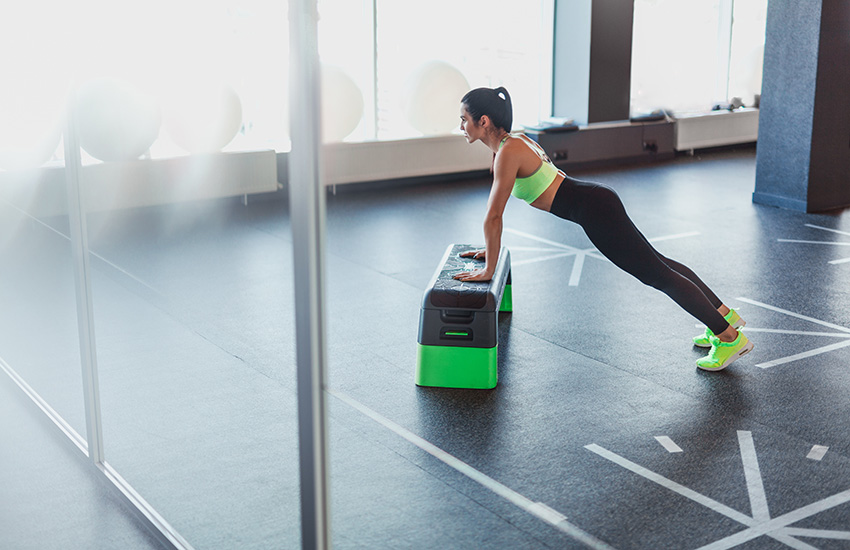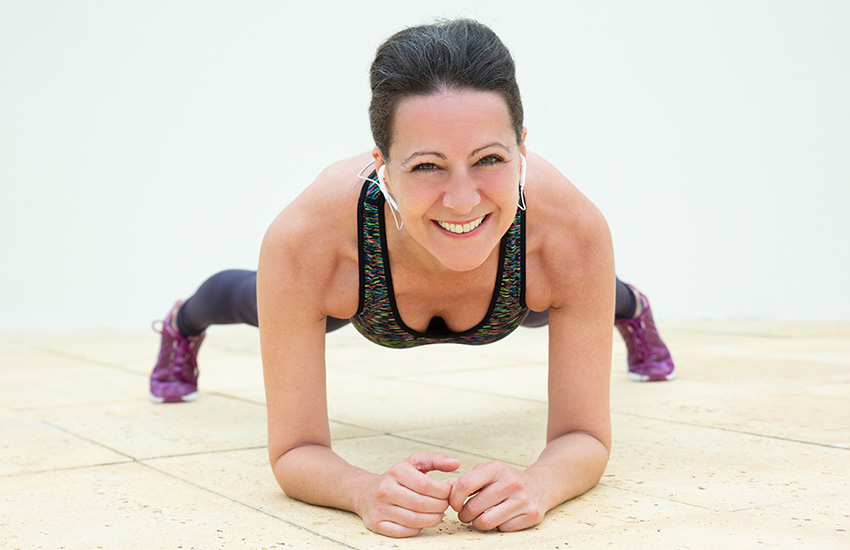Although it has only been in this century that women have really enjoyed the benefits of strength/weight training, strength training itself has a long history – beginning with the great Olympic champion, Milo of Crotona, who lived in Greece in the 6th century BC. It is believed Milo hoisted a baby bull on his shoulders to improve his strength. As the bull grew heavier, Milo improved his strength. Even back then, people were aware that lifting a weight would improve muscle tone and size, and consequently improve strength. Thankfully, we have come a long way in the ‘sport’ of weight training – I can’t see it being as popular as it is now if we still had to hoist bulls!
WHY WEIGHT?
One of the many remarkable properties of skeletal muscles is their adaptability. If a muscle is stressed (within tolerable limits), it will adapt to improve its function. That is why, even after a short time of lifting weights, we can see and feel changes in our muscles. The muscle will hypertrophy, or increase in size, accompanied with increase in strength and endurance.
Increasing muscle strength is not the only benefit of weight training. The more research that is done on weight training, particularly for women, the more benefits we can add to the list.
- Weight training tones your muscles, which not only improves function but also has aesthetic appeal! Toned arms and shoulders is the best accessory for a sleeveless dress or top.
- Once you reach 25-30, your resting metabolism declines. Weight training can reverse this, as muscle tissue requires more energy to function than fat. This in itself has many benefits:
- The more muscle you have, the less prone you become to ‘middle-age spread’!
- Even at rest your body is burning more energy, making it easier to maintain your weight.
- Increased metabolism decreases gastrointestinal transit time, reducing the risk of developing cancer of the colon.
- Weight training and weight-bearing activities (walking, running and push-ups etc) strengthen bones as well. This substantially reduces the risk of osteoporosis.
- Weight training has a positive effect on almost all of your 650+ muscles.
- Weight lifting decreases your risk of developing adult onset diabetes.
- Stronger muscles of the trunk will improve posture, making you less prone to back injuries.
- Strength training can improve functioning of your immune system.
- Weight training using lighter weights and doing higher repetitions can have aerobic benefits as well. Consequently your heart becomes more efficient and resting heart rate is lowered. As a result, your resting blood pressure is also reduced.
- Weight training improves balance and co-ordination.
- Weight training increases your High Density Lipoproteins (HDL), which in turn reduces cholesterol levels.
- Weight training makes you stronger, giving you more confidence. You will also feel energised and enjoy all the emotive benefits of exercise.
DISPELLING THE MYTHES
One of the main reasons it has taken females a little longer to fully appreciate weight training is the common belief that it will cause you to ‘bulk up’ and look masculine. This can be true if you are lifting heavy weights, eat a high protein diet, possibly use a growth hormone and train several hours a day. This scenario is more likely for someone who is into bodybuilding as a sport, and muscle mass is their goal. They spend a lot of time and money to achieve muscle bulk.
The average female who participates in weight training is more likely to tone and define the muscle. The muscle will increase in mass slightly, but because females have one tenth the testosterone males have, you will never get that ‘bulky’ look unless you work really hard at getting it.
Another myth regarding muscle mass is that muscle weighs more than fat! Each time I hear this I cringe. Not only is it a negative comparison to fat, it is simply not true. How can 1g of fat weigh less than 1g of muscle? Muscle is more dense than fat, therefore 1g of muscle will take up less space than 1g of fat. This is a bit like comparing a tonne of feathers and a tonne of lead – the feathers would certainly need more room.
When you begin weight training, you may notice that – according to the scales -you weigh more, but in fact your jeans feel looser. Remember that muscle needs less room, as it is more dense. Use your clothes as a guide, not the scales
Lastly, the myth that you can convert your fat to muscle! If our bodies were so remarkable, they would convert say a kidney to a heart, in the case of a heart attack!! Your body’s cells are highly specialised and once a ‘fat’ cell, always a ‘fat’ cell. Likewise, once a muscle fibre, there is no miracle transformation to fat.
I can understand how some people may think this, as once you begin weight training, particularly if you include aerobic exercise, you will lose fat and at the same time be developing muscles. You could almost be excused for thinking that the now missing fat has been converted to the now present muscle. Not so! The muscle was always there, it just hadn’t surfaced, due to the fact that it was being ignored!
BASIC GUIDELINES
Before you start your weight training program, there are some important points to keep in mind.
- Ensure you have proper guidance in developing your individualised weight training program. If you use incorrect technique, you can do some serious damage.
- For absolute beginners, stick to the machines – although they can look intimidating, they are very easy to use. Machines also have the advantage of being highly specific, isolating the muscle to be worked and supporting all other muscles. Much less chance of going wrong.
- Always warm your muscle prior to putting stress on them. Warming your muscles makes them more pliable and less prone to tearing if put under too much pressure too quickly.
- Just about all of our muscles have a partner muscle that performs the opposing movement. If you work one of the muscles, be sure to work the other to keep the balance. If you do abdominal exercises, work the back, do tricep work with bicep exercises and hamstrings with quadriceps for example.
- Ensure muscles rest. Don’t work the same muscle groups two days in a row. You will achieve better results if you let your muscles fully recover between workouts.
- You need to weight train 3 to 4 times a week to achieve an increase in muscle strength and tone.
- Be aware of the DOMS syndrome – Delayed Onset of Muscle Soreness. You may think you are not putting too much undue stress on your muscles, then the next day, or even the day after, you feel tight and stiff. Stretching will help this, but easing into weights is also important.
- Keep the program varied, include aerobic activity and do plenty of stretching, since during weight training your muscle fibres will shorten.
The benefits of weight training should not be underestimated. You will also learn more about your body and which muscle performs what movement. As you gain experience, you can train at home. You don’t need a hi-tech home gym, just some free weights and a little imagination, like Milo. And remember – if you don’t use it, you lose it!
By Kris Abbey



















